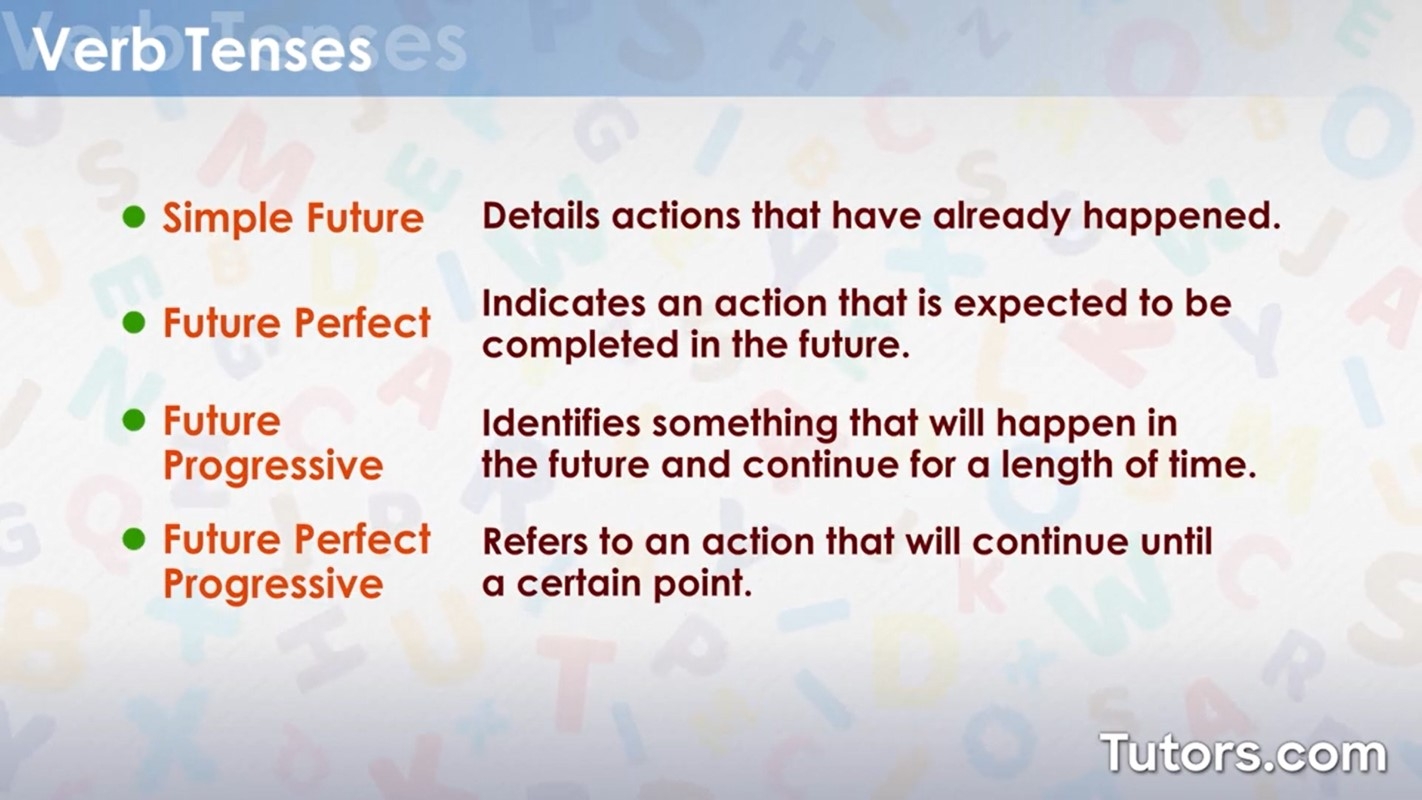Verbs are an essential component of language, as they convey actions, events, or states of being. Understanding the different tenses of verbs is crucial for effective communication and writing. By mastering the various tenses, individuals can accurately convey when an action took place, is taking place, or will take place.
Verb tenses help to provide context and clarity to a sentence, allowing readers or listeners to understand the timeline of events. Without proper knowledge of verb tenses, sentences can become confusing or ambiguous, leading to misunderstandings.
Tenses of Verbs Meaning
There are three main tenses of verbs: past, present, and future. Each tense is further divided into simple, continuous, perfect, and perfect continuous forms. The past tense is used to describe actions that have already happened, the present tense for actions that are currently happening, and the future tense for actions that will happen.
The simple past tense is used to describe completed actions in the past, such as “she walked to the store.” The past continuous tense is used to describe actions that were ongoing in the past, such as “they were playing football.” The past perfect tense is used to describe actions that were completed before another action in the past, such as “he had finished his homework before dinner.” The past perfect continuous tense is used to describe actions that were ongoing and completed before another action in the past, such as “she had been studying for hours.”
The present simple tense is used to describe habitual actions or facts, such as “he eats breakfast every morning.” The present continuous tense is used to describe actions that are currently happening, such as “they are watching a movie.” The present perfect tense is used to describe actions that started in the past and have relevance to the present, such as “I have lost my keys.” The present perfect continuous tense is used to describe actions that started in the past and are still ongoing, such as “she has been waiting for hours.”
The future simple tense is used to describe actions that will happen in the future, such as “they will arrive tomorrow.” The future continuous tense is used to describe actions that will be ongoing in the future, such as “I will be working on a project.” The future perfect tense is used to describe actions that will be completed before another action in the future, such as “she will have finished her work by the time you arrive.” The future perfect continuous tense is used to describe actions that will be ongoing and completed before another action in the future, such as “they will have been studying for hours.”
Overall, understanding the tenses of verbs is essential for effective communication and writing. By mastering the various tenses, individuals can accurately convey when an action took place, is taking place, or will take place, providing clarity and context to their sentences.
